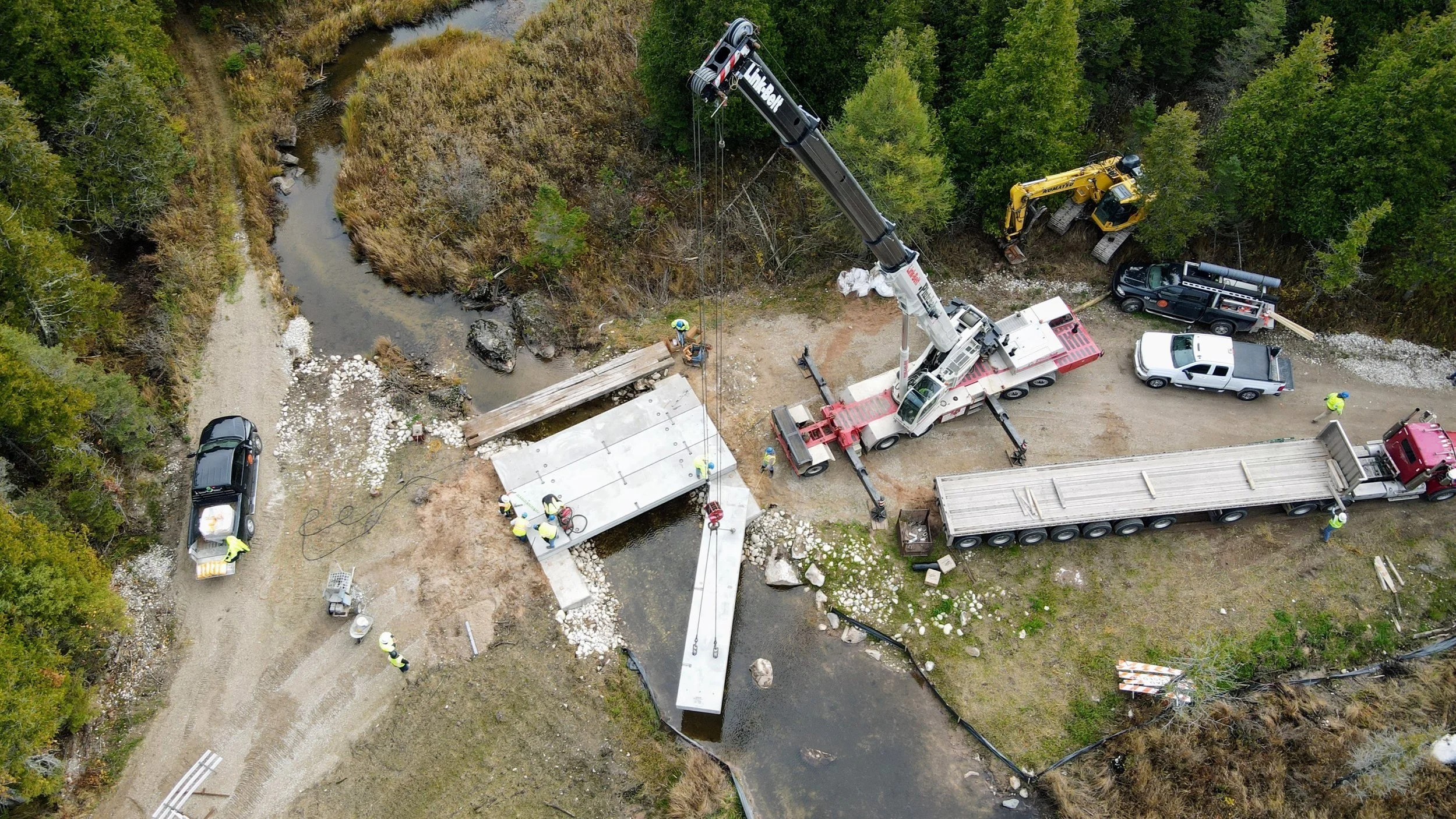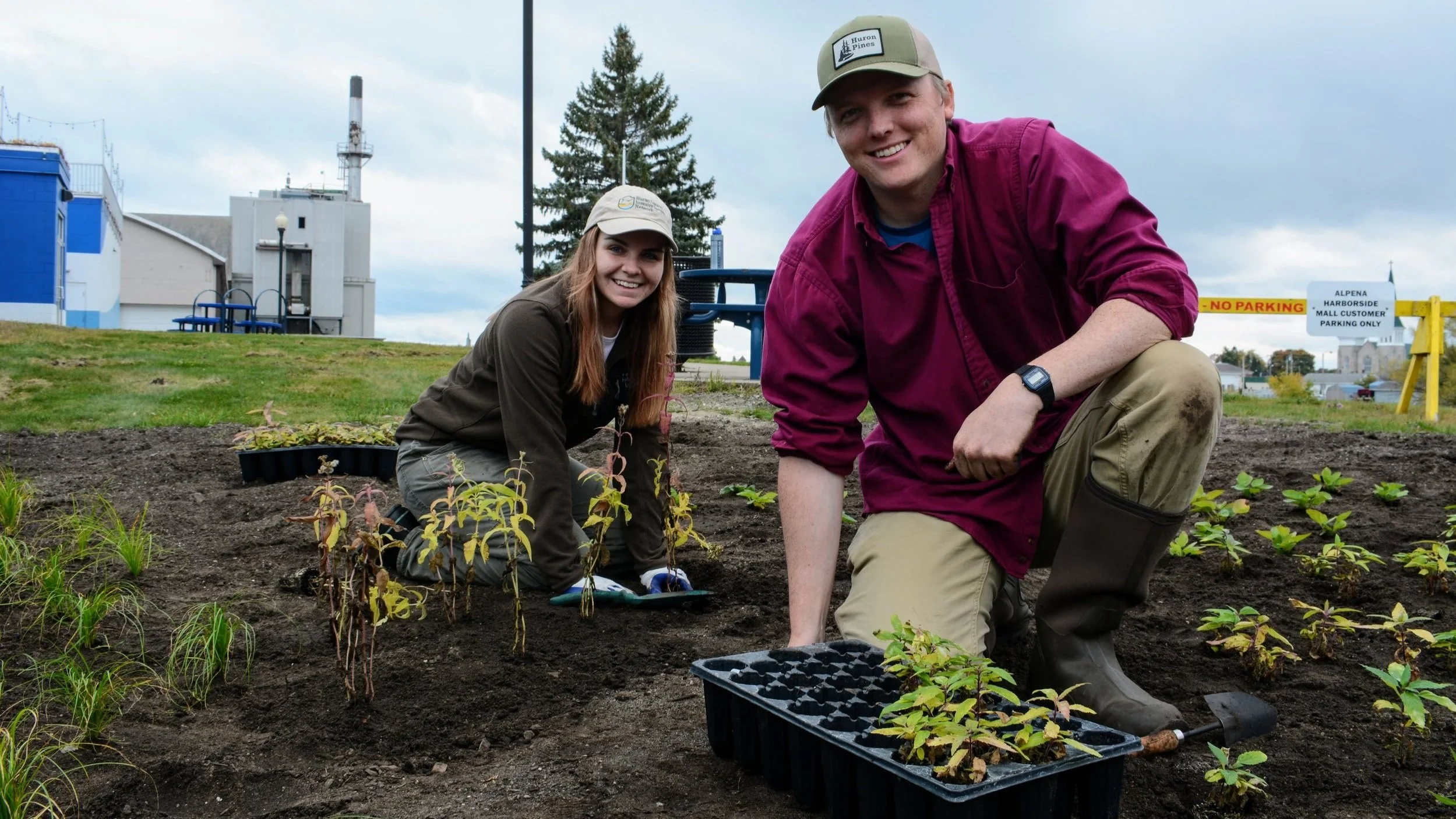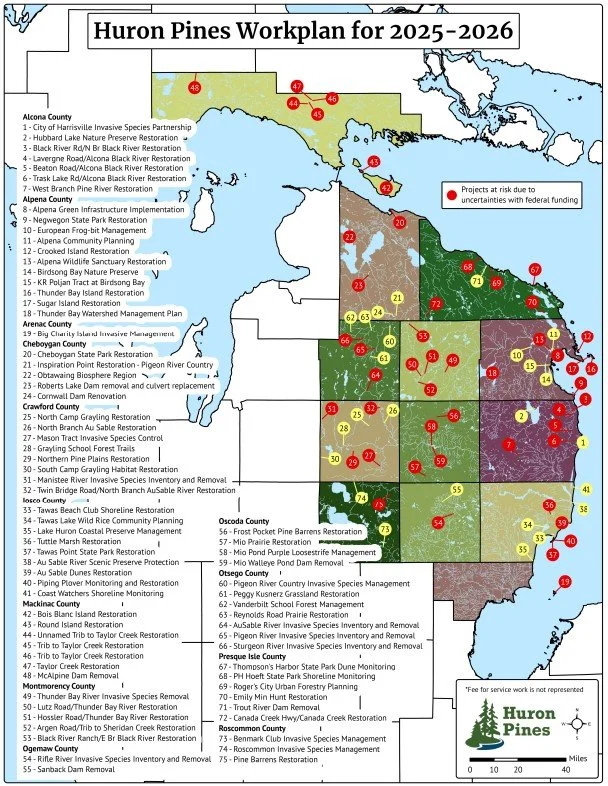With Challenges Ahead, Our Mission Endures
As you may have experienced, our region encountered significant challenges from the recent ice storm, with some communities—including members of our staff and board—going without power for weeks. While we're still grasping the full ecological impact of this event, we know our forests and watersheds will change in the months and years ahead.
What’s been more difficult though, are the major challenges we’re facing from federal funding cuts and changing regulations. For over 50 years, Huron Pines has partnered with local communities, government agencies, foundations and private landowners to improve water quality, fight invasive species, enhance public access to nature, and protect the places we all love. This doesn’t just benefit future generations—it immediately strengthens local economies, creates recreational opportunities and improves infrastructure for everyone.
A 2024 restoration project reconnected 17 miles of coldwater stream habitat for native brook trout and improved road safety at three crossings of Beavertail Creek in Chippewa County.
Federal Funding Implications
We typically manage more than 50 projects annually, all funded through a blend of partnerships and funding sources, with federal agency grants and contracts accounting for approximately half of our total budget. When federal funding was recently frozen, it jeopardized much of our ongoing conservation work.
As of now, federal courts have ruled that funding should be released, so we’re proceeding with all planned 2025 projects. While this carries some risk, we believe a pause would threaten our momentum on these critical initiatives and disrupt our carefully cultivated partnerships, local economic benefits and environmental progress. A halt would leave contractors unpaid, potentially force us to lose skilled staff, and abandon water infrastructure that remains vulnerable to failure.
Huron Pines staff Amber Hubbard (l) and Nick Theisen install plants in a rain garden at the NOAA Great Lakes Maritime Heritage Center in Alpena.
Moving Ahead With Major Programs
Despite our challenges, we're advancing our mission on several exciting fronts:
We're finalizing the protection of nearly 300 acres for public access—236 acres of prime elk habitat in the Pigeon River Country State Forest and a 42-acre island tract with vistas of the Au Sable River—and transferring ownership to the DNR and Charter Township of Oscoda, respectively.
Our seasonal stewardship crews are preparing for extensive invasive species control efforts on land and water across 11 counties of Northeast Michigan.
We're moving forward with the 2026 removal of Sanback Dam in Rose City to further enhance the Rifle River Watershed, where few stream barriers make it one of Northern Michigan's healthiest watersheds for fish habitat and water quality.
Our Lake Huron Forever initiative is expanding to include the community of Goderich, Ontario, in an international effort to protect the water quality of our shared Great Lake.
For 2025-2026 we have more projects planned than ever before, which are illustrated on the map below. Projects that rely significantly on federal funding—and therefore at higher risk of cuts—are indicated with a red dot. (Click the map for a full-size pdf.)
While challenges remain, Huron Pines is committed to conserving and enhancing Northern Michigan's natural resources to ensure healthy water, protected places, and vibrant communities.
How You Can Help
Spread the word and share our message the following ways:
Like & share our updates on Facebook & Instagram. Invite your friends to follow our pages.
Make a donation at huronpines.org/donate.
Subscribe to our eNews.
Now more than ever, we are counting on your generous support to help us address immediate needs and sustain our ability to protect Northern Michigan's natural resources for generations. By making a meaningful gift today, you can ensure this important conservation work continues uninterrupted.
Thank you for being part of our conservation community.



